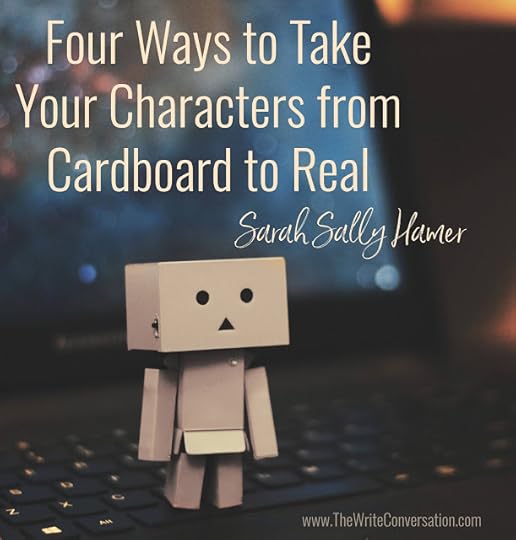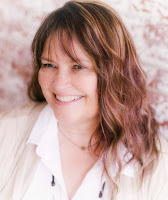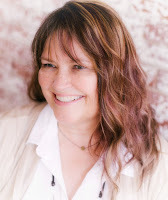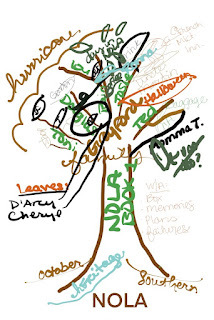Edie Melson's Blog, page 152
September 3, 2021
What to Do When Writing is Hard—Conquering the Writer's Mountain

by Tim Suddeth @TimSuddeth
It’s funny how writing is so much like going on a hike. We set off with so much enthusiasm and such great intentions. Maybe, we even bought new North Face hiking shoes and a new backpack. We get on the trail, enjoying the smells and sounds of nature as we walk through the woods. Then, as we emerge from a grove of trees, we catch our first sight of the mountain.
And all the enthusiasm just leaks out of us. We notice the blister starting from our new shoes that suddenly seems too tight. And why didn’t someone say something about the bugs.
No matter where you are on your writing journey, you are going to run up against another mountain. Whether it’s getting an idea, finishing your work, finding an agent or publisher, getting through all the edits, marketing, platform… Okay, I’m stopping now. I’m depressing myself.
Like anything that is worth doing, writing is going to have its hard times. There are times it going to take more effort than others. (Parents, can you say two o’clock feedings?) And there are times when you’ll have to decide, is it worth it?
Tips for Conquering the Writer's Mountain
1. You may not have to climb it now.
I’m a big believer in that most of our decisions ought to be answered in pencil. Usually, the question isn’t do it now or never. Maybe the answer is wait. Sometimes we need to take a step back. Maybe you need to get up and walk around the block or take a few days to work on another project.
Sometimes we aren’t ready. Writing is a mixture of art, craft, and perspiration. To do your best work, you have to put the work in first.
Or, maybe this just isn’t the right time. You may have too much going on in your life right now.
A friend of mine just let us know she isn’t going to a writer’s conference because of her husband’s health. There is only so much that you can do. It is better to recognize the size of your load and stop taking more on before your axle breaks. (The washer overflows? Okay, the metaphor is weak, but you get the point.)
2. You don’t have to travel alone.
It is so ironic that writing is seen as a solitary activity. Yet, that doesn’t mean that you can’t find a friend, a mentor, or a peer to help you on your journey. Even if you are quarantined and it’s just you and your laptop, you can still call or text a friend. Writers are such a social bunch. We understand what each other is going through.
And there are so many writers, you can always find a pack who writes similar things as you. If the backpack gets too heavy, reach out to a FaceBook group. Katy Kaufman has a very supportive group for people who write devotions. You can join a writer’s group that meets either in person or virtually. Word Weavers, ACFW, are some great places to start.
When I decided I wanted to write, I didn’t have a clue where to begin. In the local paper, there was a listing for a writers’ group who met on the second Thursday of the month. I went to a meeting and found a group who opened my eyes to this whole new world of Christian writing.
3. You can get better.
You may be in a spot where you feel you don’t know anything. The mountain is too intimidating, and you don’t know where to begin.
And look at those people already halfway up. I’ll never get there.
Everyone starts at the bottom of every mountain. (Unless you were born on the side of the mountain.) And there are lessons you have to learn to be able to climb.
This is when you take the time to work on the craft of writing. That doesn’t mean you have to break into Fort Knox. There are numerous blogs (like this one) that are free. You can find writing books at the library, your neighborhood bookstore (look it up), or Amazon. And many writing groups have classes.
And when you’re ready, you can invest in a conference or a writer’s retreat. Look at it as investing in yourself. You never know what kind of return you’ll get.
4. There’s more than one way to get to the top.
One of the biggest reason a writer gets discouraged is they look at how someone else is doing and they get discouraged. It looks like everything comes so easy for them. It’s like watching a duck bob on the water, seeming to move around so effortlessly. We don’t see how hard its feet are kicking under the water.
I can hear my teacher saying, “Keep your eyes on your own paper.”
We don’t know what the other person is going through or what God has in store for them or you. We do know we have a loving God who has plans designed for each of us. I repeat, designed for each of us. And I’ve heard He knows what He is doing, even without us giving Him advice.
5. You aren’t in this alone.
And piggybacking on God having a unique plan for each of us, no one goes on their journey alone. You may be a new mom who feels stuck at home with the kids, someone taking care of an elderly parent, or you are unable to go out as you like; but you are never alone. The One who created the cosmos sent His Son to tell us that They care for us.
In John 14, Jesus says He will be with us. Since He formed the constellations scientists haven’t discovered yet, I don’t think He will have a problem finding you. Even if you think you are too insignificant for anyone to notice, must less a busy God. He said He cares for the little sparrows.
He even keeps up with the number of hairs on our heads. (Easier for some than others.)
You are so significant that He sent the only thing He couldn’t duplicate, His son, to reveal Himself to us and to die so He can spend eternity with us. He’s even prepared us a room.
I think that makes each of us very special.
So, the next time you feel beaten, the skeeters are getting to you, or the mountain just seems too steep, remember Who is with you. And instead of worrying about the bugs, imagine the view that God has waiting for you at the top.
TWEETABLEWhat to Do When #Writing is Hard—Conquering the Writer's Mountain - @TimSuddeth on @EdieMelson (Click to Tweet)
 Tim Suddeth is a stay-at-home dad and butler for his wonderful, adult son with autism. He has written numerous blogs posts, short stories, and three novels waiting for publication. He is a frequent attendee at writers’ conferences, including the Blue Ridge Mountain Christian Writers Conference and a member of Word Weavers and ACFW. He lives near Greenville, SC where he shares a house with a bossy Shorky and three too-curious Persians. You can find him on Facebook, Twitter, or at timingreenville.com.
Tim Suddeth is a stay-at-home dad and butler for his wonderful, adult son with autism. He has written numerous blogs posts, short stories, and three novels waiting for publication. He is a frequent attendee at writers’ conferences, including the Blue Ridge Mountain Christian Writers Conference and a member of Word Weavers and ACFW. He lives near Greenville, SC where he shares a house with a bossy Shorky and three too-curious Persians. You can find him on Facebook, Twitter, or at timingreenville.com.
Published on September 03, 2021 22:00
September 2, 2021
How do You Start Writing Your Story in the Right Place?

by A.C. Williams @ACW_Williams
By writing heroes who do stuff!
Imagine this: You pick up what promises to be a captivating adventure. True heroes in death-defying circumstances. A gorgeous cover. Even an endorsement by a recognizable name.
Fantastic, right?
Then, you spend the first chapter learning all the background of the main character and why it matters.
Okay, well, surely the story will begin in chapter two.
But no, you read all about the exciting world where the character lives. Maybe you meet a few of his or her friends in rapid succession, so rapidly in fact that you can’t remember their names.
Not a problem. The story will begin in chapter three.
But, no, you backtrack and learn more about the character’s history and their family and their intense emotional pain in chapter three. And in chapter four. And in chapter five. Mixed in with playful banter between friends who you still can’t remember their names. And it’s set in a gorgeously described world that doesn’t really resonate with you.
Would you continue reading chapter six?
Maybe? Depends on how well I know the author. Just saying. Life’s too short, and my TBR pile is too tall.
Recently I’ve noticed authors writing stories that go five or six (or more) chapters before the inciting incident occurs. And maybe I’m old-fashioned (no, I know I am), but that’s WAY too long to go before you start your story.
Let me back up in case there are those among us who are unfamiliar with the seemingly antiquated terminology of the three-act structure. (Shakespeare is rolling over in his grave, y’all.)
What is the Inciting Incident?
This storytelling element is the moment where your story begins. It’s the event that happens to your main character that forces him or her out of normal life and launches the adventure.
Why does the Inciting Incident Matter?
It’s what starts the story. Until the story begins, nothing is happening. It’s just character introduction, world building, set up, and other content that (frankly) can usually be cut out.
Here’s the trouble.
Inciting incidents can be a bit daunting because storytellers tend to think that they must introduce their characters and their worlds completely before readers will connect with them. And, to a certain extent, there is truth in that, especially in speculative fiction.
If you’re writing a high fantasy novel with talking fox people and sentient sycamores that do the Viennese waltz, we need some background before the story takes off. But the vast majority of us aren’t writing stories like that. I mean, some of us are (pretty sure I got a pitch for something like this recently). But even then, your readers won’t connect with your story world until they connect with your characters. And they can’t connect with your characters until they DO SOMETHING.
That’s where the inciting incident comes in. We don’t know your characters until we see them in action. We can’t connect with them until they face a tough decision and make a choice that upends their entire life.
In the opening chapters where you spend all your space and word count on the world or the setting or the main character’s history or introducing us to their band of merry men, your protagonist isn’t doing anything. He or she is just sitting passively waiting for something to happen, and that’s not what heroes do.
Real heroes do stuff, y’all.
Storytelling that captivates readers is high tension, increasing personal stakes, and relatable character voice. None of those story elements are passive.
So how do you do this? How do you balance introducing your character and your world with an inciting incident that lands in chapter one or chapter two?
There’s no one-size-fits all answer. Every story is different. Every character and world is different. But I use a general rule of thumb for my own writing, and it seems to work fairly well.
Every sentence is a stepping stone.
The goal for your opening sentence in chapter one is to get your readers to read the second sentence in chapter one. The same is true from paragraph to paragraph, from page to page. Chapter one should make your readers desperate for chapter two, and so on and so forth.
Let us live the story alongside your protagonist, and we will fall in love with the world when we love your characters. And the best way to help us love your heroes is to show us how they respond when the sky is falling.
Always remember that your readers don’t owe you anything. They aren’t going to read your book just because you wrote it. You have to earn their time and attention, and that means you can’t give them any excuse to stop reading. We’re competing with YouTube and Netflix, you know.
Don’t waste your audience’s attention span describing stuff. Start the story as soon as you can. Reveal the world through the character’s eyes as the story unfolds. Keep the tension high on every page. And you’ll have a story worth reading, even if it does include talking fox people and waltzing sycamores.
TWEETABLEHow do You Start Writing Your Story in the Right Place? - @ACW_Williams on @EdieMelson (Click to Tweet)
 A.C. Williams is a coffee-drinking, sushi-eating, story-telling nerd who loves cats, country living, and all things Japanese. She’d rather be barefoot, and if isn’t, her socks will never match. She likes her road trips with rock music, her superheroes with snark, and her blankets extra fuzzy, but her first love is stories and the authors who are passionate about telling them. Learn more about her book coaching services and follow her adventures on social media @ACW_Author.
A.C. Williams is a coffee-drinking, sushi-eating, story-telling nerd who loves cats, country living, and all things Japanese. She’d rather be barefoot, and if isn’t, her socks will never match. She likes her road trips with rock music, her superheroes with snark, and her blankets extra fuzzy, but her first love is stories and the authors who are passionate about telling them. Learn more about her book coaching services and follow her adventures on social media @ACW_Author.
Published on September 02, 2021 22:00
September 1, 2021
Why Starting Can Be Hard for Writers

by Lynn H. Blackburn @LynnHBlackburn
Starting is hard—in writing and in other places.
Let me explain.
I’ve been a knitter for years, but recently I learned how to crochet. So for the past few months I’ve spent more time with a crochet hook than my knitting needles. But few nights ago, I sat down with my knitting needles to start a small project.
It did not go well.
Now, if you aren’t a knitter, you may not realize this, but before you can knit a project, you have to “cast on” the stitches. This is the part where you get the yarn on the needle. It’s only after the stitches are on the needle that you really begin to knit.
But I couldn’t remember how to do it! I wrapped the yarn around my fingers, moved the needles around the yarn, even closed my eyes hoping that muscle memory would kick in and I would open them and discover that I’d succeeded in casting on a few stitches.
Yeah. That didn’t work.
I panicked a little. What was happening? Had I forgotten how to knit? How could that be? I’m a knitter!
After several failed attempts I broke down and pulled up a video that showed the cast-on I was attempting. A few tries after that, it clicked in my brain, and I successfully cast on the stitches so I could begin my project. Once that was done, I dove into my pattern and whipped up ten rows without a mistake.
It turned out that I hadn’t forgotten how to knit.
I had forgotten how to start.
Now, I hear you. You’re whispering to your screen right about now. “Lynn, sweetie, this is a writing website. Not a knitting website.”
Yeah, yeah. I know. But I had a little bit of a writing epiphany while I was knitting.
Because this isn’t the first time I’ve stared at my hands at the start of a new project and been completely baffled as to how to begin. Except in those cases, my hands were on my keyboard, and the new project was a blinking cursor on a blank page.
Every writer is different, so what I’m about to share may not apply to you, but I’m the kind of writer who absolutely hates starting a story. I can spend weeks on the first few scenes. I start. Stop. Type. Delete. Brainstorm. Try again. Delete more.
This is the point where I typically have a bit of a writer meltdown. My thoughts spiral into a vortex of drama and fear.
I’ve forgotten how to write!How is it possible that I have successfully completed novels in the past?Clearly, I’m a hack. This is a disaster. I have no idea how to do this.Etc.
For the record: I’m not being hyperbolic. You can ask my friends. I freak out at the beginning of every novel. It’s ridiculous. But here’s where my epiphany comes in.
I’ve realized that when I freeze at the beginning of the story, it isn’t because I’ve forgotten how to write. It’s because I’ve forgotten how to start. And in a weird way, I find that very comforting.
I’ve written seven books. These books have all landed in the 90K word range. They have taken months and months to write. I’ve had lots of practice with writing.
But I haven’t had a lot of practice with starting a new story. I’ve only done it seven times. Okay, ten times if you count the novellas and the novel still in the drawer. The point remains.
Starting a story is its own unique process in the life of your manuscript. And it’s okay if you stumble at the beginning. In fact, you can write the worst beginning in the history of first chapters and guess what?
IT IS OKAY!
Why? Because, unlike with knitting (where that cast on is hard to fix later), your first sentence, scene, or chapter of your manuscript can change as many times as you need it to. You may even discover, as many, many authors (myself included) have, that you don’t need that first chapter and it may wind up as a deleted scene.
Sadly, there’s no magic video you can watch that will fix the beginning of your story in under 60 seconds.
There is, however, a longer, more arduous fix. It can be painful, but it works.
It has two parts.
1. You must keep putting down words that you may not keep.
This is particularly difficult for those of us who have a smidge of perfectionism (okay, my friends just snorted their coffee because my perfectionism game is strong). It hurts me at a deep level to cut pages and pages of writing. Or to start over. Or to realize that the first chapter has to go. But that’s the first step and it isn’t optional.
2. You must keep going until you reach the end.
A lot of writers never get past the beginning. They have written, rewritten, revised, edited, critiqued, and generally lived inside the first chapter or two of their story and never made it past that because they can’t get it quite right. Y’all. You have to keep going. Will you get to Chapter 15 and realize you’re going to have to make changes to Chapter 1? Probably. Keep going anyway. Write all the way to the end. Again, this step? Not optional.
When we stagnate in the first few chapters, we never get the joy of swimming in the wide-open spaces of the middle, and we miss out on the thrill of the breathtaking conclusion.
Starting is hard. But when you get to the end, you’ll be so glad you did.
Grace and peace,

TWEETABLEWhy Starting Can Be Hard for Writers - @LynnHBlackburn on @EdieMelson (Click to Tweet)
 Lynn H. Blackburn loves writing romantic suspense because her childhood fantasy was to become a spy, but her grown-up reality is that she's a huge chicken and would have been caught on her first mission. She prefers to live vicariously through her characters and loves putting them into all kinds of terrifying situations while she's sitting at home safe and sound in her pajamas!
Lynn H. Blackburn loves writing romantic suspense because her childhood fantasy was to become a spy, but her grown-up reality is that she's a huge chicken and would have been caught on her first mission. She prefers to live vicariously through her characters and loves putting them into all kinds of terrifying situations while she's sitting at home safe and sound in her pajamas! Lynn’s titles have won the Carol Award, the Selah Award, and the Faith, Hope, and Love Reader’s Choice Award. Her newest series kicks off in March 2021 with Unknown Threat, Book 1 in the Defend and Protect series.
She is a frequent conference speaker and has taught writers all over the country. Lynn lives in South Carolina with her true love and their three children. You can follow her real life happily ever after by signing up for her newsletter at LYNNHBLACKBURN.COM and @LynnHBlackburn on BOOKBUB, FACEBOOK, TWITTER, PINTEREST, and INSTAGRAM.
Published on September 01, 2021 22:00
August 31, 2021
Four Ways to Take Your Characters from Cardboard to Real

by Sarah Sally Hamer @SarahSallyHamer
We're always looking for ways to make our characters more real. In fact, the manuscripts that cross my desk often get red-lined because the characters are not "strong enough". What constitutes "real"? It comes down to one word—congruity.
Character congruity means that we writers must understand our characters well enough that we don't make them do something they aren't supposed to. Or visa-versa. I know this sounds a little funny—they aren't REAL!! So how can they do something they shouldn't? But it's really pretty easy. Characters act just like humans.
Humans have reasons for what they do. So do characters.
Humans base their reasons on both internal and external experiences. So do characters.
Humans react to conflict or disasters or problems in very specific ways. So do characters.
So, if a human is told that a much-beloved dog has been killed in a sudden accident, we can make certain assumptions about how that human will react, based on how well we know him or her. Again, each human (and character) is different, but we all will react in some way, whether it's hysteria, great sadness, or a shrug.
How you create a character will directly determine what reaction he or she has. In so many words, they are congruent with their personalities.
If the human or character doesn't show emotion easily, a shrug may be all that the viewer sees. If he or she is more dramatic, there may be tears. The actual reaction is not as important as the fact that there IS a reaction. And that the reaction is congruent with the way the character has been created.
The opposite of congruent is when that dramatic character DOESN'T react to a tragedy. Or when the stoic fellow breaks down and sobs.
But one of the beauties of congruency is when the character doesn't react as we expect. That type of situation must happen with purpose. IF your character has been shown to be stoic and instead falls apart, there should be a really good, and obvious, reason. Usually, a character who has been reacting in a certain way all along realizes that the "old way" no longer suits. The situation may be the same but the character has learned a lesson and changes. We also call it a character arc.
So how do we make our characters more real? We study real people and learn from them.
Here are four ways to make your characters more real:Start with a notebook or journal. Write down ideas about your characters, trying to see through their eyesWatch the people around you. Be observant. Find a good place to sit and take notes. What reactions do they have? Of course, you don't want to get too close—I think that's known as stalking—but see if you can tell what they're thinking and reacting to.Talk to your friends/family/writing peers. Give them examples of situations and ask them how they would feel in certain situations. Watch movies, read books. Immerse yourself in how writers—both good and bad—write about their characters' emotions. Are they congruent? Why or why not?For me, this is the fun part of writing—we get to really interact with people, even if they're not someone we know. Regardless, it gives us a change to delve deeper into our own reactions, maybe discovering something we didn't know.
Do you people watch? What interesting things have you seen?
TWEETABLEFour Ways to Take Your Characters from Cardboard to Real - @SarahSallyHamer on @EdieMelson (Click to Tweet)
 Sarah (Sally) Hamer is a lover of books, a teacher of writers, and a believer in a good story. Most of all, she is eternally fascinated by people and how they 'tick'. She’s passionate about helping people tell their own stories, whether through fiction or through memoir. Writing in many genres—mystery, science fiction, fantasy, romance, medieval history, non-fiction—‚she has won awards at both local and national levels, including two Golden Heart finals.
Sarah (Sally) Hamer is a lover of books, a teacher of writers, and a believer in a good story. Most of all, she is eternally fascinated by people and how they 'tick'. She’s passionate about helping people tell their own stories, whether through fiction or through memoir. Writing in many genres—mystery, science fiction, fantasy, romance, medieval history, non-fiction—‚she has won awards at both local and national levels, including two Golden Heart finals.A teacher of memoir, beginning and advanced creative fiction writing, and screenwriting at Louisiana State University in Shreveport for almost twenty years, she also teaches online for Margie Lawson at WWW.MARGIELAWSON.COM. Sally is a free-lance editor and book coach at Touch Not the Cat Books, with many of her students and clients becoming successful, award-winning authors.
You can find her at hamerse@bellsouth.net or WWW.SALLYHAMER.BLOGSPOT.COM
From Sally: I wish to express gratitude to the giants upon whose shoulders I stand and who taught me so much about the writing craft. I would list every one, if it were only possible.
Published on August 31, 2021 22:00
August 30, 2021
A Writer's Stumbling Block—Expectations

by Edie Melson @EdieMelsonMy soul, wait in silence for God only, For my hope is from Him (Psalm 62:5)
When I was young all I wanted to be was a writer. As a matter of fact, I actually wrote my first novel in eighth grade...long hand, with a purple-ink pen. But through the years, my dream of writing drifted farther and farther from the realm of reasonable possibilities, until I finally I gave up.
But as a young mother of three kids, God revived that call. At first I was scared, but then I got excited. Oh the plans I made—I’d write Bible studies and spend my time traveling, speaking, and working for God.
I finished my first Bible study and the printer ink was barely dry before I had the manuscript in an envelope and on the way to publisher. I could see my future so clearly, and I was on fire with plans to do great feats in His kingdom. All He had to do was open this one door.
Not only did He not open that door, it seemed every other door had slammed shut and locked. It quickly became obvious that going and doing weren’t part of His call to me. Instead, the doors at home began to swing wide, as He invited me to share my story with those closest to me.
As I swallowed my pride and became obedient to act where He’d placed me, the fruit began to grow. Years later, going and doing has become part of my call, but first I’d had to learn obedience and the difference between His will and mine.
A Prayer When I Struggle with ExpectationsFor I am confident of this very thing, that He who began a good work in you will perfect it until the day of Christ Jesus (Philippians 1:6)
Dear Lord, I had such energy and hope when I first heard you whisper that I would be a writer. My imagination and dreams soared to the apex of what that calling could be. But now I’m no longer flying, instead I’m crawling through the mud of defeat and despair. Every word I write feels stale and like it’s all been said before. Am I faithfully following Your call or should I just give up
Help me let go of my own expectations and be a conduit for Your words. I want to share Your love through the words You have for me to write. Replace the false voices with the calling that allows me to be exactly who You made me to be
Speak to me. Let me clearly hear Your plan for my life. Lead me into fresh ways to write about You. Fill my sentences with words that touch the minds and hearts of those who read them. Let me see the world around me with fresh eyes as You speak Your truth in unusual ways. Then guide my hands as I re-cord what You’ve shown me.
Your world is a place of color and texture; sounds and smells. Renew my ability to paint pictures with words. Fill me with Your Spirit as my fingers once again fly across the keyboard. You are my inspiration and my joy. Open a pathway for that joy to spill over into my words as I write. Amen
TWEETABLEA Writer's Stumbling Block—Expectations, a devotion & prayer from @EdieMelson (Click to Tweet)
*This is an excerpt from Soul Care for Writers (Bold Vision Books 2019)
 Edie Melson is a woman of faith with ink-stained fingers observing life through the lens of her camera. No matter whether she’s talking to writers, entrepreneurs, or readers, her first advice is always “Find your voice, live your story.” As an author, blogger, and speaker she’s encouraged and challenged audiences across the country and around the world. Her numerous books reflect her passion to help others develop the strength of their God-given gifts and apply them to their lives. Connect with her on her WEBSITE, through FACEBOOK, TWITTER and on INSTAGRAM.
Edie Melson is a woman of faith with ink-stained fingers observing life through the lens of her camera. No matter whether she’s talking to writers, entrepreneurs, or readers, her first advice is always “Find your voice, live your story.” As an author, blogger, and speaker she’s encouraged and challenged audiences across the country and around the world. Her numerous books reflect her passion to help others develop the strength of their God-given gifts and apply them to their lives. Connect with her on her WEBSITE, through FACEBOOK, TWITTER and on INSTAGRAM.
Published on August 30, 2021 22:00
August 29, 2021
Grow Your Social Media Presence AND Still Have Time to Write

by Edie Melson @EdieMelson
I teach online and in person—a lot. In spite of the fact that I’m a card-carrying introvert, I love getting to share what I’ve learned about publishing and marketing with other writers. And I love teaching writers the value of social media. One of the things I get asked over and over again is, “How do you accomplish so much and still have time to write.”
This question always thrills me, because I have some tips that can truly make a difference in the person who’s asking. My tips aren’t difficult or expensive or even hard to implement. Many are ones I’ve developed over the years as I’ve tried to give myself more uninterrupted writing time. Others are ones I’ve learned from fellow authors. Today I’m going to share some of the best of them with you.7 Things to Help Control Your Social Media Life1. Start using a scheduling program. There is no way I could have such a consistent social media presence without the use of Tweedeck. I used to recommend Hootsuite, but they've gotten prohibitively expensive. Buffer is also a good option. Whichever one you choose, using a scheduling program to manage Twitter will be a life-changer. I can schedule all my tweets (not Facebook or blog posts, just social media) for the entire day in thirty-minutes. Then I can be active online, while I’m actually working on writing.
2. Take advantage of Facebook scheduling options. For your professional Facebook page or your group and also for Instagram, you can schedule directly from Facebook.
3. Quit trying to be active on too many networks. Active is the key word here. I have accounts—and up-to-date info—on all the big networks. I’m on Twitter, Facebook, Instagram, Pinterest, MeWee, LinkedIn, YouTube, TikTok, Goodreads, and probably a couple of others I’ve forgotten. So anyone searching these networks will see a recognizable picture of me and a link to my website. BUT, I’m only actively posting to Twitter, Facebook and Instagram. I just can’t keep up with more than that. And truthfully, that’s enough. Choose two or three networks and stick with those.
4. Do your homework and build a library. No, not a room—or building—in which to store your books. I’m referring to last week’s post about How to Always Have Something of Value to Share on Social Media. If you don’t have a ready-made list of places to look for social media updates, it will take you a long time to come up with things to share.
5. Use a timer to keep track of your time. I get it. I can spend hours on Facebook just browsing. But that’s free-time activity, not publishing-related activity. Don’t waste your valuable writing time by getting lost on a social media network. If you have trouble with this, set a timer.
6. Don't spend so much time watching your numbers. You agonize over friends and followers, trying to anticipate the ups and down an stay on an even uphill trajectory. Relax. Your numbers will rise and fall for an infinite number of reasons—most of which you’ll have little or no control over. Do what you need to do (be consistent, use a scheduling program, don’t talk about yourself very often, etc.). Then take a deep breath and limit your number crunching to once a month. If you do the things I’ve mentioned here (and on this blog), your numbers will grow. But more importantly, you’ll make real and valuable connections that will be supporters and readers.
7. Start being consistent on social media. By that I mean you want to avoid skipping a day or two (or a week or two). Then, to make up for it, spending several hours at a time on social media. This All or Nothing Social Media Mindset (I did an entire blog post here) is as bad as doing nothing. It keeps you from gaining any kind of momentum with the effort you’re making. Spending ten or fifteen minutes a day, four to five days a week will get you way further down the road than spending two hours, once a week. The reason is because your name is out there more often. With social media, it’s how often your name shows up, not for how long a time it’s there, that makes the difference.
These are the main things I’ve found that suck my writing time into social media time. I’d love to find what time-wasters plague you—and how you combat them. Be sure to leave your thoughts in the comments section below.
Don’t forget to join the conversation!Blessings, Edie
TWEETABLETips to Grow Your #SocialMedia Presence AND Still Have Time to Write - @EdieMelson (Click to Tweet)
 Edie Melson is a woman of faith with ink-stained fingers observing life through the lens of her camera. No matter whether she’s talking to writers, entrepreneurs, or readers, her first advice is always “Find your voice, live your story.” As an author, blogger, and speaker she’s encouraged and challenged audiences across the country and around the world. Her numerous books reflect her passion to help others develop the strength of their God-given gifts and apply them to their lives. Connect with her on her WEBSITE, through FACEBOOK, TWITTER and on INSTAGRAM.
Edie Melson is a woman of faith with ink-stained fingers observing life through the lens of her camera. No matter whether she’s talking to writers, entrepreneurs, or readers, her first advice is always “Find your voice, live your story.” As an author, blogger, and speaker she’s encouraged and challenged audiences across the country and around the world. Her numerous books reflect her passion to help others develop the strength of their God-given gifts and apply them to their lives. Connect with her on her WEBSITE, through FACEBOOK, TWITTER and on INSTAGRAM.
Published on August 29, 2021 22:00
August 28, 2021
How to Grow Your Story with a Word Tree

by Molly Jo Really @MollyJoRealy
Did you know word tree is a real thing? I didn’t.
But my subconscious must have. Because late one night last week, I saw it.
Halfway between wanting to write and needing to sleep, the concept of my story started to group itself together in ways I hadn’t imagined before.
Now, I’m an organic writer. That just means my tale tells itself naturally, and I to try pay attention and put the words togetherness best I can. I don’t often have an outline, and when I do, it’s more like a thought cloud. Ideas that could should would tie in together if I do my job write. Oh, I mean, right. (Insert winky face here!) These words tend to float around in my head, like high clouds. Some are dark and mysterious. Some are bright and bold.
So before I introduce to my word tree, let’s see what it really is:
Basically, a word tree is a teaching tool to show younger writers how to diagram sentences, and associate the proper verbiage in doing so. The trunk is the structure. The leaves are meant to fill in the blanks. Is this a noun or pronoun? What’s the verb? Yeah. You get the idea. If the sentence is correct, the leaves fill in the spaces. Except it still leaves quite a few spaces, which makes for a fairly barren tree.
 My word tree is a little different.
My word tree is a little different. The roots and trunk are the story. Let’s face it, if my story isn’t strong, that baby’s gonna topple over as soon as a Spring breeze kisses it. Amiright?
But here’s the thing. A tree doesn’t grow trunk then branch then leaf then a smaller branch… No, way! It all grows concurrently. One branch over here widens and leaves pop out, while another branch over here doesn’t have too much greenery but does have several promising shoots. Then there’s the one you think may turn into something, but then again, maybe not. And the more these branches grow, the more leaves that flourish, the wider the trunk and the deeper the roots. And everything entwines around each other, just as a story isn’t a telling of events but a combination of experiences.
“Great visual, Mojo, but how does that help with my writing?”
I’m so glad you asked.
If you’re an outliner, turning your story into a Word Tree can give you a visual of your strengths and weaknesses. Organic/pantser? No problem. Same benefits.
A word tree can help you break down the elements of your story. Do they flow together? Should they? Maybe your branches are too clustered. Or maybe they are a work of art as they entwine. Maybe you have too many leaves on the east but not enough on the west. A Word Tree helps you understand what you’re growing, and how to prune it.
“So, how do I create a Word Tree?”
Easy peasy, my writerly friend!
Whether you use a computer or hand-draw your word tree, there are several ways to do so.
The first is to find the system that works for you. I prefer the notepad and stickee note method. Why? Well, because I’m a sloppy note maker. And like the holiday window clings of our past, stickees can be shifted.
Draw your roots, trunk and primary branches. Don’t be fancy. List the primary elements of your story on the trunk: main characters, setting, plot. Branch off the sub-stories and secondary characters (they may grow stronger, but it’s okay if they don’t).Use leaves for short but important details: character descriptions, motivations, locations, events.What’s exciting about Word Trees is the ability to see your words come to life as you create the story. It’s an artistic outlet that still focuses on your WIP.
Word Trees can be used not just for novels, but any style of writing. Unless it’s a technical manual. In that case, use a word ladder that builds on each previous step. Or, if you’re like me, just don’t.
I’d love to see your Word Trees. Share them on Instagram and tag me!
Happy growing, y’all!
Come alive, stay wild, and always, savor the journey!
~M.
TWEETABLE
How to Grow Your Story with a Word Tree - @MollyJoRealy on @EdieMelson (Click to Tweet)
 Author of the romantic location mystery novel,
NOLA
, Molly Jo Realy is an award-winning writer and author coach. Known as the Bohemian Hurricane, she encourages people to embrace their unique talents to come alive and stay wild every day. Addicted to cats, coffee, and pens in no particular order.
Author of the romantic location mystery novel,
NOLA
, Molly Jo Realy is an award-winning writer and author coach. Known as the Bohemian Hurricane, she encourages people to embrace their unique talents to come alive and stay wild every day. Addicted to cats, coffee, and pens in no particular order.
Published on August 28, 2021 22:00
August 27, 2021
Why Does the World Need Stories - Part 1

by Zena Dell Lowe @ZenaDellLowe
This last week I got a call from a friend of mine who felt trapped in an existential funk. She said she hadn’t been able to write anything over the summer, not because she was out of ideas, but because of everything that’s been happening in the world.
She couldn’t reconcile how she was supposed to justify writing her little one woman show based on her own childhood struggles with her complicated mother which impeded her ability to find herself as an adult. And, by the way, you should know that it’s a delightful little piece. It’s funny, poignant, creative and insightful, and yet she hasn’t been able to finish it since, as she said, "What does it matter in light of what's happening in the world? It all just feels so meaningless and self-indulgent."
In the past, I might have launched into my arsenal of proofs to persuade her that story is the most powerful thing on this planet. I’ve spent a considerable amount of time pondering this subject and have developed some well-reasoned arguments to demonstrate the potency of our trade. I have even come to believe that story is as essential to human life as air.
After all, stories connect us to other living beings. They teach us empathy, which is arguably the most important human characteristic that individuals in a society can manifest. Without the ability to empathize or understand and relate to someone who is “not us,” there could be no communities among people. There could be no peace or grace. We need stories to live among others and stay alive. Further, stories are the greatest weapon God has given us to penetrate the hearts and minds of people. They are the primary means by which human beings make sense of the world. They give our lives meaning. Without question, stories are important. But while we may know this in a general way, the real question raised by my friend was whether HER story mattered.
What Makes a Story Matter?
Considering all that’s going on in the world today, you might be struggling with this same predicament. The fact is, not all stories are created equal. Some stories matter more than others depending on the type of story it is, the worldview it represents, and its relevance given the “signs of the times.” I’ve expounded on the first two points at length on The Storyteller’s Mission podcast, but the arguments are worth reviewing.
I’ve said, for example, that Christians ought not feel pressured to write stories with happy endings, as if that’s the only way to positively impact culture. Indeed, sometimes people need to see the consequences of sin or the logical outcome of someone who refuses to repent. There is room in God’s economy for hopelessness. Not all human beings are redeemed. A story that honestly captures this reality might do far more good for someone than a happy, feel-good story ever could.
Thus, the acid test of a story that matters is NOT whether it ends well, nor does it have anything to do with how “clean” that story appears to be. There’s this pervasive idea among Christians that a story is “good” if it contains no sex, no violence, and no language. In fact, nearly all of Christendom has adopted this faulty method of evaluating stories. But a story isn’t “good” based on what it lacks. A story is good because of what it offers. Insofar as it accurately reflects a true, biblical worldview, then that story is good.
It follows, then, that no genre ought to be off limits, nor should genre play into the question of merit. One genre isn’t “better” or “more important” than another. Every genre has value and serves a purpose, which may be noble depending on the writer’s intentions and ability to express it.
For example, I’ve known several writers who love to write comedy, but have felt embarrassed about it. Somehow, they had come to see this genre as being less important than drama, since their primary purpose was to make people laugh. That makes comedy meaningless fluff, right? Try telling that to Charlie Chaplin, whose comedic performances probably saved the lives of countless men and women who had become despondent during the great depression. For Charlie, comedy was not the opposite of serious. It was the opposite of despair. Where there is laughter, there is hope.
It’s all about Worldview
The upshot of all this is that Christians should feel free to write Action, Comedy, Drama, Thriller or Horror – whatever genre they like best and feel they can write well. All genres are available to them just as all subjects are available to them, and neither the genre nor the subject has any particular bearing upon a story’s merit, as long as that story ultimately reflects the truth of the world as God created it. This is the sole acid test of a story’s value – whether or not it accurately portrays a true, biblical worldview. However, there are times in history when a particular type of story offers a unique opportunity to a writer who wishes to maximize his impact on the world. To that end, there is one more category worth exploring: the relevancy of a story given the signs of the times.
Reading the signs of the times
This is the part where I skip ahead and just tell you what kinds of stories I think the world needs right now. Later, I’ll explain why and how and what it all means. But for now, as we reflect on this, it’s important to understand that there are certain times when we need certain types of stories because of what’s happening in the world around us. And what the world needs now are heroes.
We need heroes. We need examples of what it means to rise up against tyranny, to take a stand in the face of certain death, to be courageous and brave and heroic and noble, even when we’re afraid. We need heroes, but we also need a better conception of what a hero actually is or can be. To that end, join me for part two of this series, where we’ll breakdown the question, “What is a hero?”
In the meantime, if you’re writing a story that accurately reflects a biblical Christian worldview, you can rest assured that your story matters. That said, there may be certain types of stories that present a greater opportunity for us to reach others given the signs of the times. What the world needs now are heroes.
TWEETABLEWhy Does the World Need Stories, Part 1 - @ZenaDellLowe on @EdieMelson (Click to Tweet)
 Zena has worked professionally in the entertainment industry for over 20 years as a writer, producer, director, actress, and story consultant. Zena also teaches advanced classes on writing all over the country. As a writer, Zena has won numerous awards for her work. She also has several feature film projects in development through her independent production company, Mission Ranch Films. In addition to her work as a filmmaker, Zena launched The Storyteller’s Mission with Zena Dell Lowe, a podcast designed to serve the whole artist, not just focus on craft. In 2021, Zena launched The Storyteller’s Mission Online Platform, where she offers advanced classes and other key services to writers. Zena loves story and loves to support storytellers. Her passion is to equip artists of all levels to achieve excellence at their craft, so that they will truly have everything they need to change the world for the better through story.
Zena has worked professionally in the entertainment industry for over 20 years as a writer, producer, director, actress, and story consultant. Zena also teaches advanced classes on writing all over the country. As a writer, Zena has won numerous awards for her work. She also has several feature film projects in development through her independent production company, Mission Ranch Films. In addition to her work as a filmmaker, Zena launched The Storyteller’s Mission with Zena Dell Lowe, a podcast designed to serve the whole artist, not just focus on craft. In 2021, Zena launched The Storyteller’s Mission Online Platform, where she offers advanced classes and other key services to writers. Zena loves story and loves to support storytellers. Her passion is to equip artists of all levels to achieve excellence at their craft, so that they will truly have everything they need to change the world for the better through story.To find out more about Zena or her current courses and projects, check out her websites at WWW.MISSIONRANCHFILMS.COM and WWW.THESTORYTELLERSMISSION.COM
Published on August 27, 2021 22:00
August 26, 2021
Editors (and Dentists) Are Not the Enemy

by Lori Hatcher @LoriHatcher2
I’ve been a dental hygienist most of my life. For 37 years, to be exact. As a dental professional, I’ve heard every dental joke out there. Dental slurs find their way into books, articles, and conversation, and I try hard not to take offense.
“That was about as fun as a root canal.”
“It felt about as good as a toothache.”
“It’s as simple as having your wisdom teeth cut out” (usually accompanied by a maniacal laugh).
Thankfully, most dental patients understand that the dental hygienist (me) and the dentist (him) are separate people with different roles. Sometimes they call me the good guy and him the bad guy.
Truth be told, we’re on the same team. Our mutual goal is to care for our patients with a minimum of discomfort (We never say the word pain) and help them have healthy teeth all their lives.
Unfortunately, sometimes we must cause pain (oops discomfort) in the short term to facilitate health in the long term.
We remove a dead nerve to cure an abscessed tooth infection. We extract an impacted wisdom tooth to treat pericoronitis. We perform a deep cleaning to combat gum disease.
Sometimes our patients know their mouth is sick. Other times they have no idea. Because we have studied everything there is to know about teeth, we can spot a decayed premolar a mile away and take action to restore it to health.
We also deal with non-disease issues. Crooked teeth. Stained teeth. Dark teeth. Misshapen teeth. Some children have Dad’s teeth in Mom’s bone structure. Or Mom’s teeth in Dad’s bone structure. Some people are missing teeth and others have too many (can you say supernumerary?).
Dental professionals love nothing more than a happy patient with a healthy, beautiful smile. We want to help them put their best faces forward so they can dazzle friends, family, and strangers with their pearly whites. We’ve dedicated our lives to this cause.
Dental professionals are not the enemy, I promise.
But what does this soliloquy have to do with editors? Besides the fact that when I’m not sloshing around in people’s saliva, I work as an author and a freelance editor?
A lot. Dare I say editors are a lot like dental personnel?
And editor’s goal is never, ever to hurt our clients or our clients’ work. Contrary to popular belief, we want to cause our clients a minimum amount of discomfort and help them have the healthiest manuscript/short story/article possible.
Unfortunately, sometimes we must cause pain in the short term to accomplish health in the long term.
We remove a dead subplot to cure an abscessed story line. We extract an impacted character to cure flat-character-itis. We perform a deep cleaning to cure Adverb and Adjective disease.
Sometimes our patients know their manuscript is sick. Other times they have no idea. Because we’ve studied everything there is to know about POV, style, and pacing, we can spot a decaying scene a mile away and take action to restore it to health.
We also deal with non-disease manuscript issues. Crooked logic. Stained subject matter. Dark themes. Misshapen motives. Some story lines have historical romance squeezed into a non-fiction story structure. Or memoir stretched over an autobiographical framework. Some stories are missing vital segments while others boast fifteen chapters when ten will do.
Editors love nothing more than happy clients with well-written, beautiful manuscripts/stories/articles. We want to help you put your best publishing foot forward so you can dazzle publishers and readers alike. We’ve dedicated our life to this cause.
Editors are not the enemy, I promise.
TWEETABLEEditors (and Dentists) Are Not the Enemy - @LoriHatcher2 on @EdieMelson (Click to Tweet)
 Lori Hatcher loves God even more than she loves chocolate—and that’s a lot. Since He saved her at age 18, she’s been on a relentless journey to know and love Him more. Her deepest desire is for others to join her on the journey. As an author, blogger, writing instructor, women’s ministry speaker, and career dental hygienist, she writes for Our Daily Bread, Guideposts, Revive Our Hearts, and Crosswalk.com. She’s written three devotional books, including Refresh Your Faith, Uncommon Devotions from Every Book of the Bible, and Hungry for God…Starving for Time, Five-Minute Devotions for Busy Women. Her latest book, Refresh Your Prayers, Uncommon Devotions to Restore Power and Praise releases March 1, 2022. Connect with her at www.LoriHatcher.com or on Facebook, Twitter (@lorihatcher2) or Pinterest (Hungry for God).
Lori Hatcher loves God even more than she loves chocolate—and that’s a lot. Since He saved her at age 18, she’s been on a relentless journey to know and love Him more. Her deepest desire is for others to join her on the journey. As an author, blogger, writing instructor, women’s ministry speaker, and career dental hygienist, she writes for Our Daily Bread, Guideposts, Revive Our Hearts, and Crosswalk.com. She’s written three devotional books, including Refresh Your Faith, Uncommon Devotions from Every Book of the Bible, and Hungry for God…Starving for Time, Five-Minute Devotions for Busy Women. Her latest book, Refresh Your Prayers, Uncommon Devotions to Restore Power and Praise releases March 1, 2022. Connect with her at www.LoriHatcher.com or on Facebook, Twitter (@lorihatcher2) or Pinterest (Hungry for God).
Published on August 26, 2021 22:00
August 25, 2021
The Importance of a Listening Place for Writers

by Henry McLaughlin @RiverBendSagas
Every day our ears are bombarded with sound—traffic, radio, television, kids, work, school, church. Almost everything comes with sound. Many times, it becomes white noise. Something that’s always there, sounds we no longer distinguish as being music or voice. We adjust and adapt. Or we block it out.
But there are times when writers need solitude and silence. We need places where we can sit and listen. These places don’t happen by default. They are conscious, intentional decisions we need to make.
A listening place is a location where we are able to do focused and purposeful listening. Sometimes, our focus might be on listening to music to calm us or to help us meditate. When I’m wanting to hear from God, I find instrumental praise and worship music most helpful. If the music has lyrics, it distracts me because I start listening to the words instead of to God. Your experience may be different. Both kinds of music are on just about every streaming music service.
And God wants quiet time with us. He hears our prayers all day long, but there are times when he wants to speak directly to us. He desires relationship with us. And relationship requires communication. And communication requires spending time with the other person to talk and, more importantly, to listen. How do we provide it to him? How do we make ourselves available to listen to him?
When we had kids at home, my wife and I waited until the children settled into their quiet time in the evening. When they were young, it was when they were asleep. As they grew, it became the time they did homework. My wife and I would squirrel away in our bedroom and talk about things that required serious conversation without distractions. And sometimes we sent the kids outside to play to get some time alone. This was back in the day when you could do that and not have Protective Services banging on your door.
In a marriage or any relationship that it’s important to us, we do it by design and on purpose. If we wait for the opportunity to come, it never will. We have to go after it with a club and protect it. And it will be different for each of us.
My wife and I are both retired now. Our kids are grown and scattered across the country. We’ve grown into a routine. We begin each day in quiet time with God. Then we come together as a couple over breakfast and we talk. We share what we saw in our quiet time. We talk about our relationship and how we can keep it strong. We discuss our dreams and plans. And we try to figure the best way to get through the day facing us and not lose touch with each other during the busyness.
My quiet time with God has evolved over the years from practically none to a time of prayer and meditation and journaling. Now, I make the conscious effort to listen to him.
I urge you to find your listening spot and time. Examine your schedule and your living environment. Is there a time and place you can reserve for time with our Father? If it doesn’t look like it, become aggressive. Make adjustments and carve out time and a place to sit and listen to God. Then protect that time and preserve it forhim and you.
TWEETABLEThe Importance of a Listening Place for Writers - Henry McLaughlin, @RiverBendSagas on @EdieMelson (Click to Tweet)
 Henry’s debut novel, Journey to Riverbend, won the 2009 Operation First Novel contest.
Henry’s debut novel, Journey to Riverbend, won the 2009 Operation First Novel contest.Henry edits novels, leads critique groups, and teaches at conferences and workshops. He enjoys mentoring and coaching individual writers.
Published on August 25, 2021 22:00



